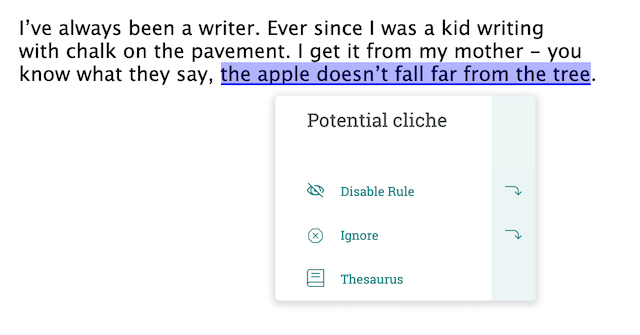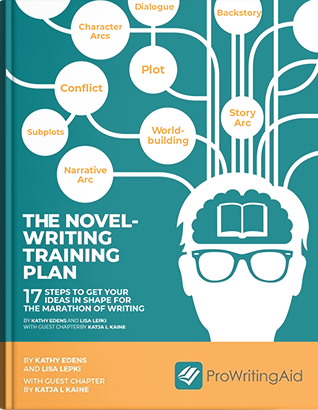
Stories have been with us since the beginning of time. Before the written word, if you wanted to pass information to the next generation, you told a story. The same is true today. We’re all storytellers.
You tell stories at work to get your point across. A vulnerable story told to a friend creates strong bonds. Everyone dribbles out bits and pieces of our backstory so others get to know us better.
Research proves that stories and anecdotes help people retain information better. Forbes reported most people only remember about 5-10% of statistics you cite. But when you accompany your stats with a story, the retention rate bounces up to 65-70%.
Even more powerful, stories are fodder for leaders. Think of any great leader, and you’re bound to remember a story he or she told in a speech somewhere. Remember Winston Churchill with his "Never, never, never give up" speech, or Martin Luther King Jr.’s "I have a dream" speech? Whether you’re leading a country, a business, or a household, you need stories to grab attention and persuade people to follow.
Storytelling is a skill anyone can learn and it’s one you need for both speaking and writing. Here’s how to hone your skills and captivate others’ attention.
Write your stories
Keep a journal of stories that inspire you. They could be your own, those of someone close to you, or ones you’ve picked up elsewhere. Know what makes for a good story: personal or professional wins, challenges, times when you persevered, etc. All good stories have conflict and resolution. And all good stories include a message. Writing your stories helps you solidify them in your mind and gives you somewhere to go when you need a good story.
Use a story to make a point
Whether you’re talking to colleagues or a friend, use a good story to make a point. The world’s greatest wisdom passes through stories. We learn from others’ mistakes and blunders. Mine your own experience for stories that can help you make your point. Ask yourself, "What is the message I want to share with my audience?" A leader uses a good story to implant a core moral or point in his or her team. A compelling single statement carries more weight than any company directive.
Practice makes perfect
The best stories are those told again and again because they grow better and richer each time. The key is to make sure you vary your audience when telling your stories. Family and friends will tire of hearing the same story repeatedly. As you add new people to your circle of influence, you can practice telling your stories to fresh ears. Instead of becoming rote, your storytelling will become better with practice.
Don't be a hero
Nothing is more boring than you swooping in to save the day. People would rather hear the lessons you’ve learned and the challenges you’ve faced. You aren’t perfect, and you shouldn’t try to be in your stories either. Instead, powerful stories show your vulnerability. Let yourself be open and vulnerable when you tell your stories because you’ll be more authentic. This is powerful mojo that enraptures your listeners.
Avoid cliches in your story
When you're telling a story, your listeners or readers want to hear from you. Don't re-use tired old phrases. Find your own words to express what you're trying to say.

If you're writing your story down, it can be easy to fall back on clichés to get your ideas out as quickly as possible. After all, there's nothing worse than agonising over a word only to forget what was going to come next. When you finish your story, ProWritingAid can help you root out clichés and overused words, find unexpected synonyms or tame your long rambling sentences.
Follow good storytelling structure
Good stories all follow a similar structure that’s easy to learn. Make sure your stories include the following elements:
Clear moral or point. Your story’s purpose shouldn’t be ambiguous. Make your point clearly and succinctly.
Relatable characters. Whether the main character is you or someone you’re close to, show a personal connection with the lead in your story.
Common world. You want your audience to easily understand the situation in your story. It must be something they can grasp through context.
Imaginative details. Include enough details about the characters and imagery in your story so your audience gets a mental picture.
Key conflict. Every story must have conflict, and it must be relatable conflict. Most people won’t respond to your trust fund problems.
3 acts. Each story has a beginning, middle, and end. Bring your story back to your topic and wrap it up with the moral or point.
Keep it simple
No one is interested in what you ate for lunch or the outfit you were wearing when the story happened. Too many details of the wrong kind can turn a good story into a bore. Some of the best stories are simple and straightforward. Unless a detail is key to your moral or point, you don’t need it. What you decide to tell should answer the question, "What do I want people to learn from this story?" A few details that add humor or create a vivid mental picture help implant your story in your audience’s minds and drive home your point.
Final thoughts
Don’t assume you don’t have the storytelling chops necessary to get the job done. We all do. Just find your best stories, follow good storytelling structure, and practice, practice, practice. Soon you’ll have your audience captivated and enraptured every time you talk or write.


